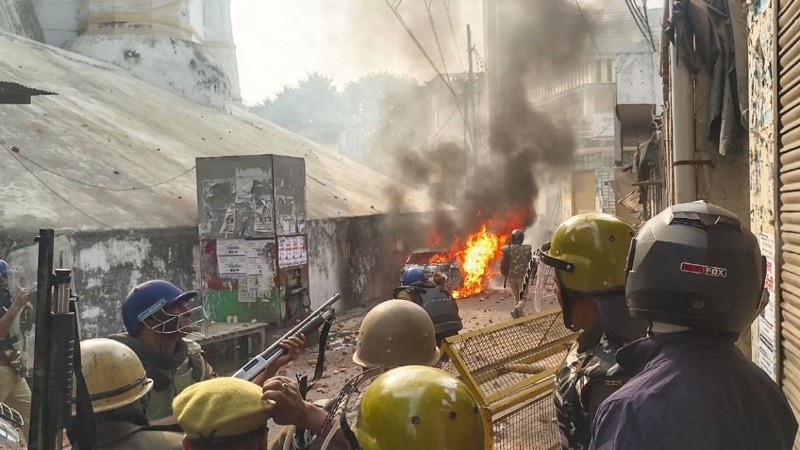
Sambhal (Uttar Pradesh): Following violent clashes in Sambhal, Uttar Pradesh, triggered by a court-ordered survey of the Mughal-era Jama Masjid, authorities have tightened security measures. The unrest led to the deaths of four youths on Sunday, prompting local authorities on Monday to enforce prohibitory orders, close all educational institutions, and suspend Internet services in the region.
Access to Sambhal is now restricted, with outsiders barred from entering the district until December 1. Public gatherings are temporarily banned, and local officials have declared that no public representatives will be allowed to visit the area during this period.
Sources revealed that weapons were discovered in the homes of some individuals detained after Sunday’s violence. Among the 21 arrested, two are women. The police are using CCTV footage to identify more suspects involved in the clashes, and additional arrests are anticipated.
The mosque at the center of the unrest is embroiled in a legal dispute, with claims that it was constructed on the ruins of a Hindu temple. Tensions flared when a crowd assembled as the survey team, led by an 'Advocate Commissioner,' attempted to conduct their investigation. The gathering quickly swelled to around a thousand, with some individuals trying to block the police from entering the mosque. The situation escalated as stones were thrown at the officers, and over ten police vehicles were set on fire.
In response, the police deployed tear gas, leading to further chaos. In addition to the four fatalities, around 20 police personnel and several others sustained injuries during the confrontation.
The survey, which commenced at 7:30 A.M., is part of a legal case initiated by a petition alleging that a temple previously stood on the site of the mosque. Tensions have been high in Sambhal since a similar survey was conducted earlier last week. Supporters of the current survey assert that historical texts, including the "Baburnamah" and "Ain-e-Akbari," suggest that the temple was destroyed by Mughal emperor Babur in 1529. Critics, however, argue that such surveys are provocations that could harm the integrity of religious sites, as protected by the Places of Worship Act of 1991.
UP Bypoll Results 2024: NDA Leads on 6 Seats, SP Closes Gap—Who Will Prevail?